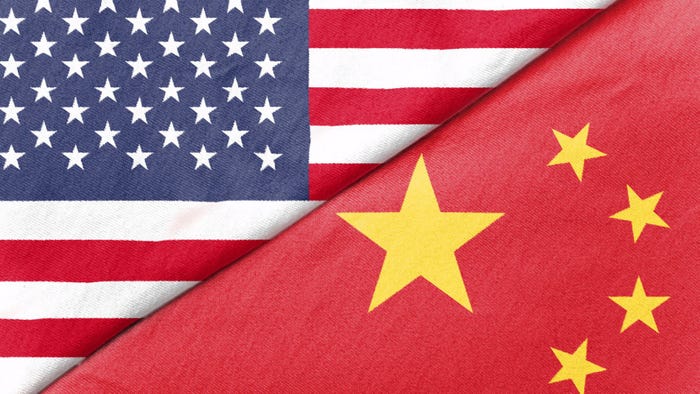Biden Administration Launches International Cybersecurity Strategy
State Department is tasked with promoting fair and secure use of emerging technologies including AI and quantum computing
.jpg?width=850&auto=webp&quality=95&format=jpg&disable=upscale)
The State Department has launched a new strategy designed to foster solidarity with international allies on cybersecurity and emerging technologies.
The U.S. International Cyberspace and Digital Strategy details the Biden administration’s framework for encouraging partners to more securely deploy technologies including AI and quantum computing.
Developed in tandem with other federal agencies, the strategy has three guiding principles:
Promote an inclusive cyberspace founded on international law, including human rights.
Integrate cybersecurity, sustainable development and technological innovation.
Adopt a policy approach that leverages diplomatic tools across the entire digital landscape.
The strategy mandates that the Biden administration will collaborate with allies to establish an open and secure digital ecosystem and forge coalitions to thwart technological threats aimed at critical infrastructure.
The State Department is tasked with spearheading the strategy’s principles, working with global partners to foster collaboration.
Secretary of State Antony Blinken unveiled the strategy during a speech at the annual RSA conference this week.
“We are in a pivotal period of international relations, characterized by acute competition between nations and shared global challenges like climate change, food and health security and inclusive economic growth,” Blinken said. “The U.S. will work with any country or actor that is committed to developing and deploying technology that is open, safe and secure, that promotes inclusive growth, that fosters resilient and democratic societies and that empowers all people.”
The newly launched strategy aligns with the Biden administration's National Security Strategy and National Cybersecurity Strategy.
The Biden administration claims that “repressive regimes” like China and Russia are using digital technologies to harm peace. Its new strategy aims to encourage allies to build a more defensible digital ecosystem.
“Some of our strategic rivals are working toward a very different goal,” Blinken said. “They’re using digital technologies and genomic data collection to surveil their people, to repress human rights. Weaponizing dominance in critical supply chains to coerce other governments. Employing AI-based tools to deepen polarization and undermine democracies.
The strategy includes what Blinken described as a “small yard, high fence” approach to protecting sensitive technologies like in the defense space.
“When it comes to technologies with clear connections to military capabilities and human rights abuses, we have to slow down our competitors’ efforts,” Blinken said. “We can’t tolerate technologies that the U.S. has developed being used against us or our friends, falling into the hands of bad actors or helping advance the military capabilities of strategic competitors.
“But we’re not doing this alone. We’re working collaboratively with partners to ensure that these efforts are carried out consistently and more effectively around the world.”
Secretary Blinken emphasized the United States' commitment to promoting safer artificial intelligence and its leadership role in the passing of the United Nations General Assembly's first-ever resolution on AI. He stressed the importance of applying the same level of effort to ensure the safety of other emerging technologies.
“Building consensus around an affirmative vision is the first line of our tech diplomacy,” Blinken said. “When it comes to AI, as confident as we are in its potential, we’re deeply aware of its risks, from displacing jobs to generating false information... We’re working with our partners to prevent and address these issues.”
About the Author(s)
You May Also Like





.jpg?width=300&auto=webp&quality=80&disable=upscale)
.jpg?width=300&auto=webp&quality=80&disable=upscale)
.jpg?width=300&auto=webp&quality=80&disable=upscale)

.jpg?width=300&auto=webp&quality=80&disable=upscale)